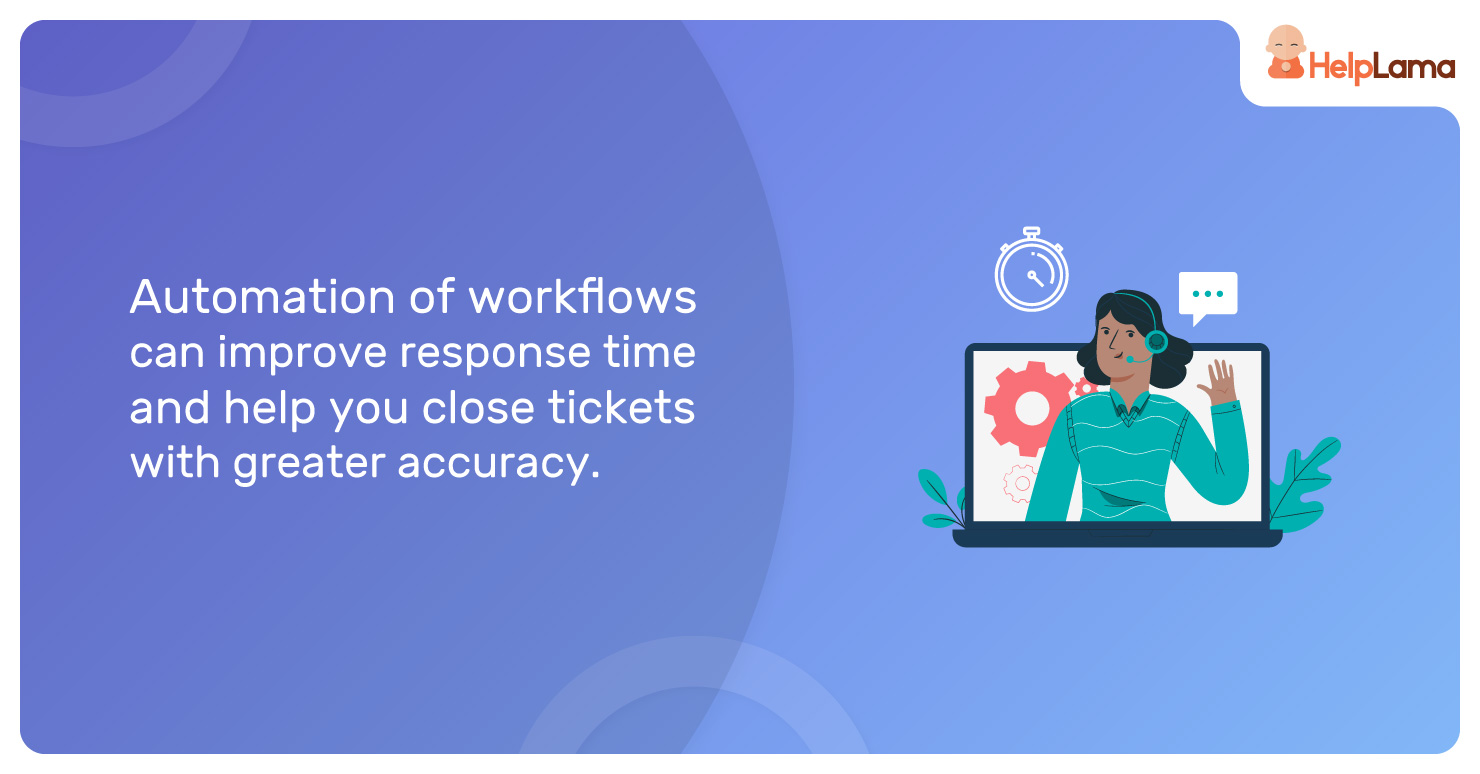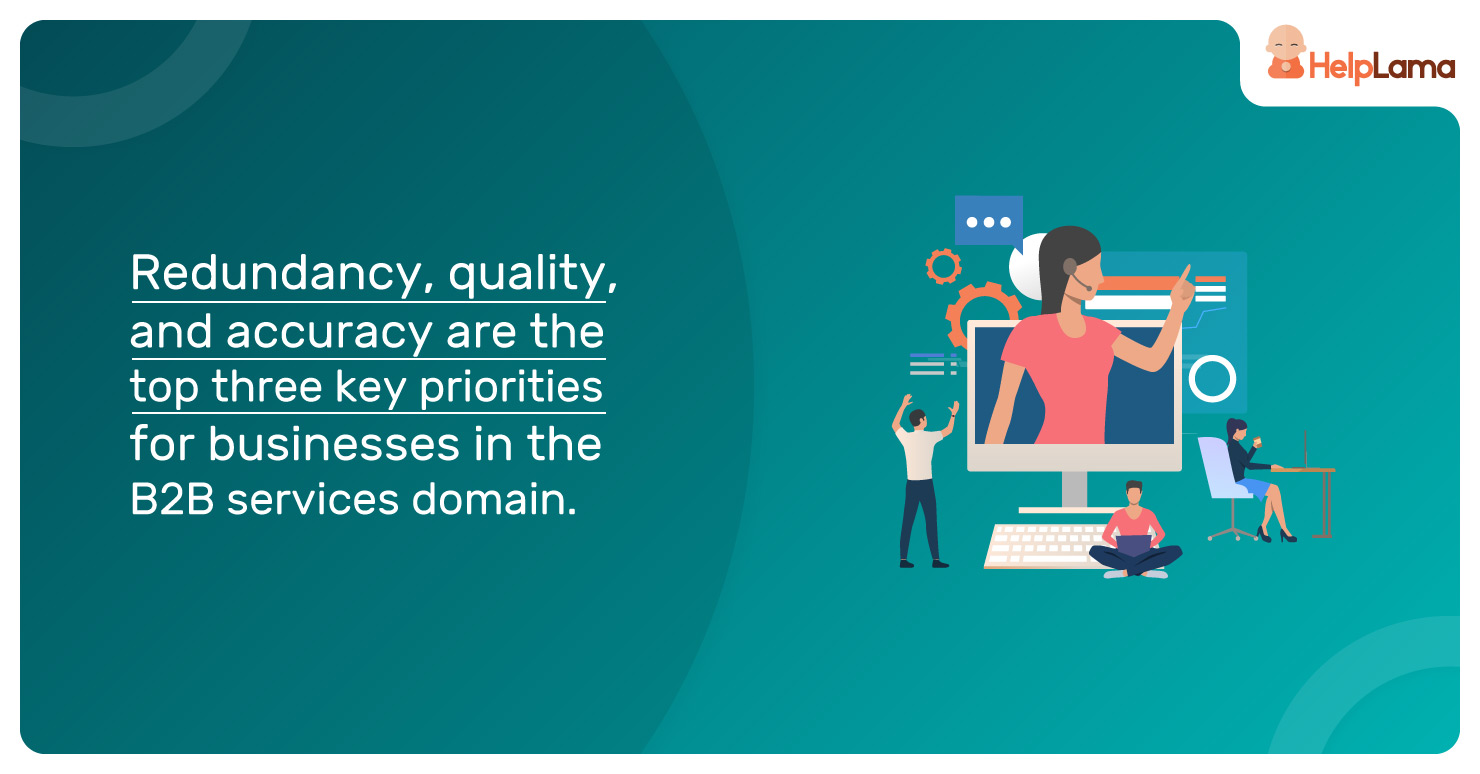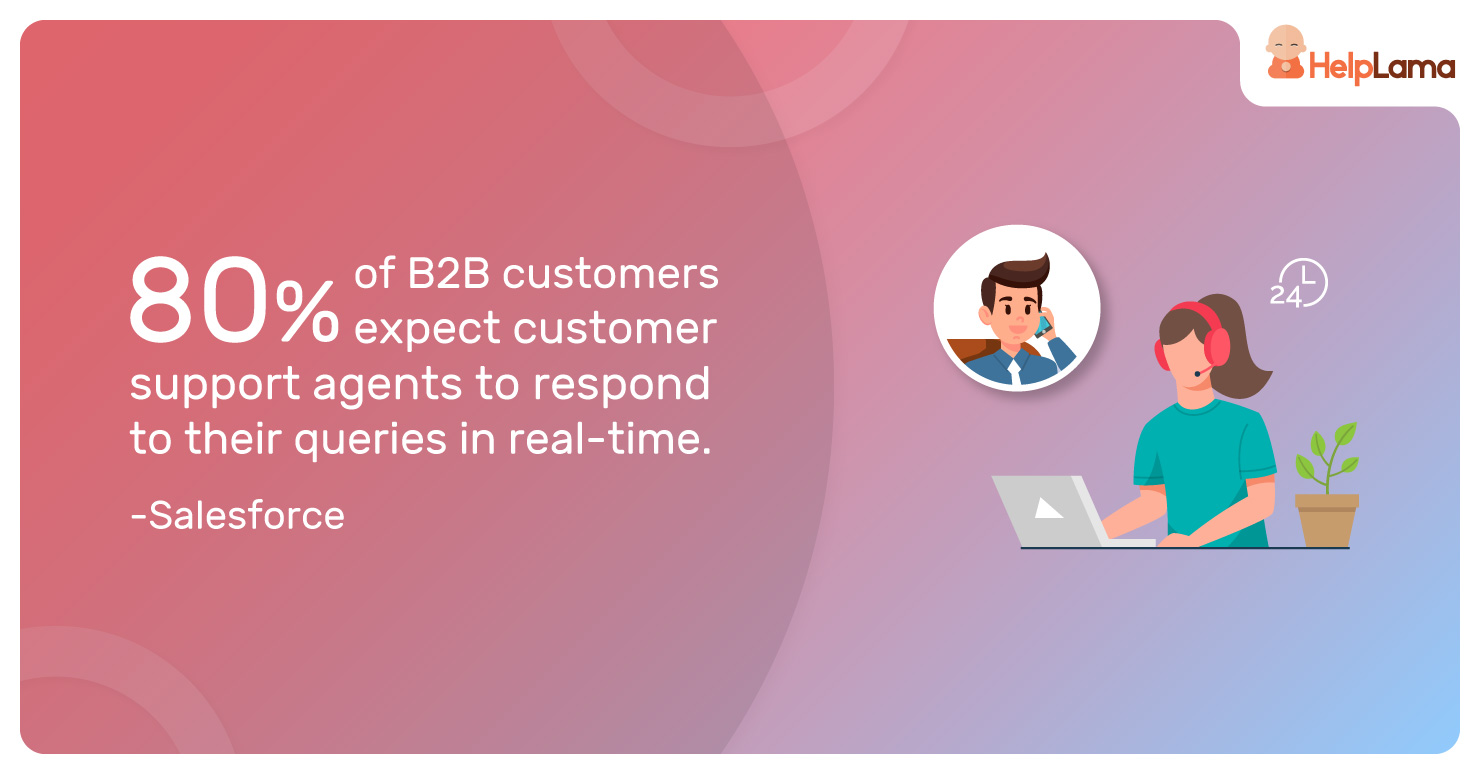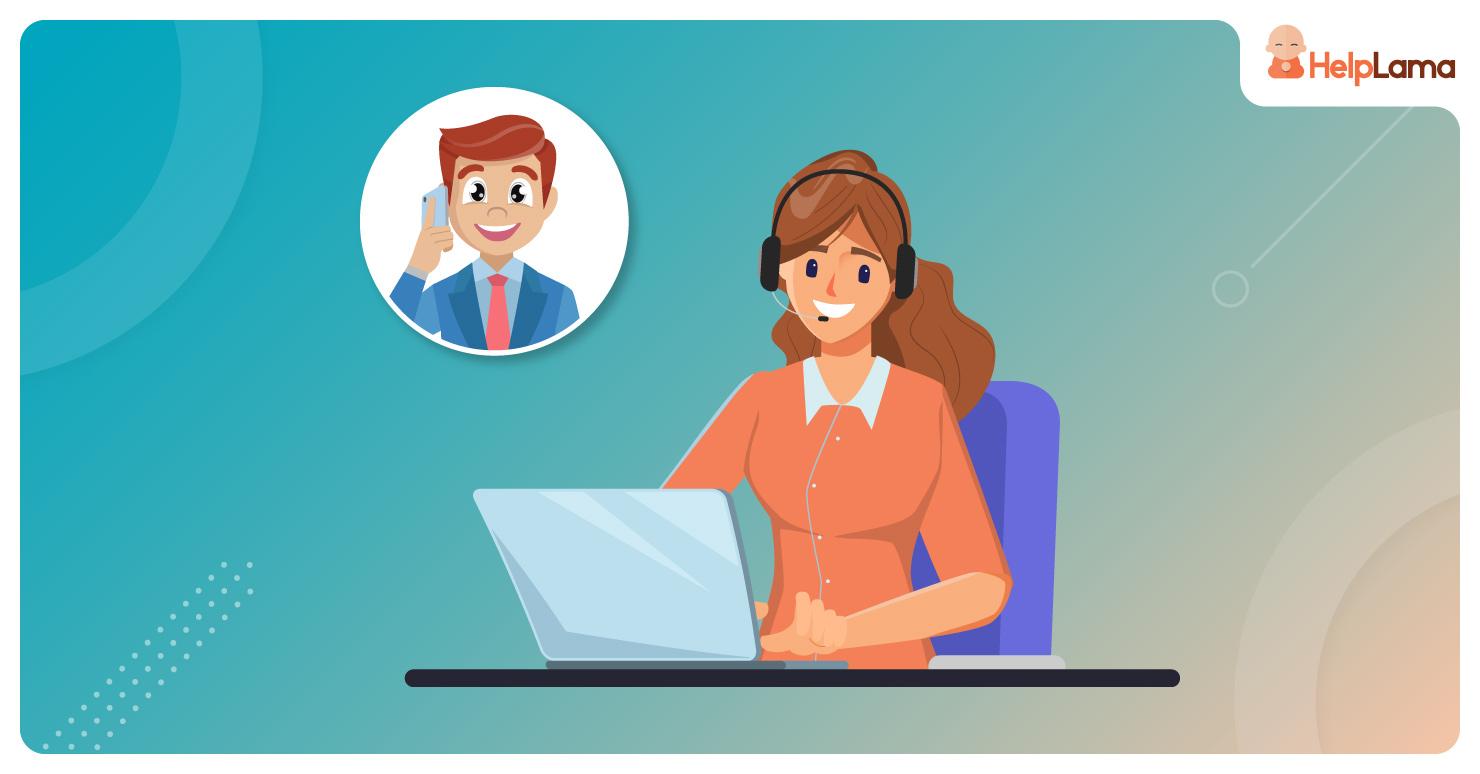B2B customer support thrives on relationships just like its B2C counterpart. The only difference being that B2B customer support is based not so much on social proof as outcomes that help client-based companies succeed with their own end-customers. The domino effect of a possible delay or disruption in service can result in the loss of millions of dollars worth of business for both you and the client.
That is why legal contracts signed between B2B customer support providers and their clients specify the scope of work to be delivered and the penalties for non-performance of so in meticulous detail. That said, there is a difference between what is considered time-critical performance in B2B customer service and relatively less important ones.
This is so because of different sales cycles, size, and scale of investment and the number of stakeholders involved. This means B2B customer support providers must be flexible and agile to adapt to meet changing customer needs at a short notice. On the other end of the scale, small business clients may have niche clients with unique needs of their own. That means a high level of flexibility and personalization.
5 B2B Customer Service Strategies That You Should Try
To retain B2B clients, customer support providers need to focus on the following 6 strategies:
1. Integrating data across multiple CRM platforms

This has a simple solution though. By integrating the various CRM tools and helpdesk software across various departments, customer support agents can deliver seamless solutions to B2B customers. Automation of workflows can improve response time and help you close tickets with greater accuracy.
2. Performance tracking and process adaptation

Data-backed insights make it easy for B2B support teams to troubleshoot problems and justify any delays. Iteratively adapting processes to changing business needs is also essential to reduce response time, increase First Contact Resolution (FCR), and increase Customer Lifetime Value (CLV) over a period of time.
3. Self-service tools
Most customers, B2B included, prefer to find their own answers regarding any issue. To ensure that known process issues can be resolved without the need for intervention by an agent, a self-service portal with user forums and downloadable workflow documents is essential. This can help customers save time and money which makes for a better customer experience overall.
Helpdesk ticketing portals must be routinely updated to ensure that the customer can log tickets and view their status on a real-time basis. If the issue is unresolved, advise them of the estimated turnaround time as appropriate and follow up within the predefined time frame. This can minimize transfers, avoid ticket aging, and hold time for customers.
4. Minimize customer effort
One of the most universal customer service principles that apply equally to B2C as well as B2B customer support is a ‘consumerized experience’. In other words, B2B customers want their customer support providers to be like Amazon or Walmart in terms of how easy they are to reach and interact with.
Complex procedures, generic service, transfers between departments, and long resolution times can jeopardize your relationship with B2B clients. The probability of the customer switching to another provider, in this case, is high. Appointing a dedicated relationship/account manager that is empowered to handle all conceivable customer requests end-to-end is a good starting point. The manager must develop a good rapport with the client’s in-house team to minimize conflicts.
Throughout the customer lifecycle, B2B customer support providers need to invest in personalizing their internal processes by following a long term customer experience roadmap. The long term goal for any B2B customer support team should be to increase the value and expertise they provide to their clients.
5. First contact resolution

So, it is vital for your team to have Standard Operating Procedures (SOPs) in place to respond to tickets efficiently and consistently.
6. Ask for feedback
Customer feedback is critical for businesses to understand any shortcomings in customer support. B2B customers proactive service where they can access information on demand. As business demands such as order volumes change, B2B clients need to adapt to them. Asking for feedback can help your support team identify the challenges faced by customers, identify ways to overcome them, and optimize your own processes to provide a better customer experience overall. Asking for feedback demonstrates that you are committed to meeting their expectations across all touchpoints.
Last words
Customer support can be an engine of growth in an increasingly competitive B2B market today. Making customer experience a core part of your business strategy can help you generate revenue and engagement over the long term. To streamline and scale your customer support operation in a cost-effective way, an outsourced customer support provider like Helplama can be an ideal partner.
We support small businesses to manage the complexity of running customer support teams. From e-commerce support to presales, we offer a range of services delivered by domain experts on a 24X7 basis. Contact us today to learn more!


